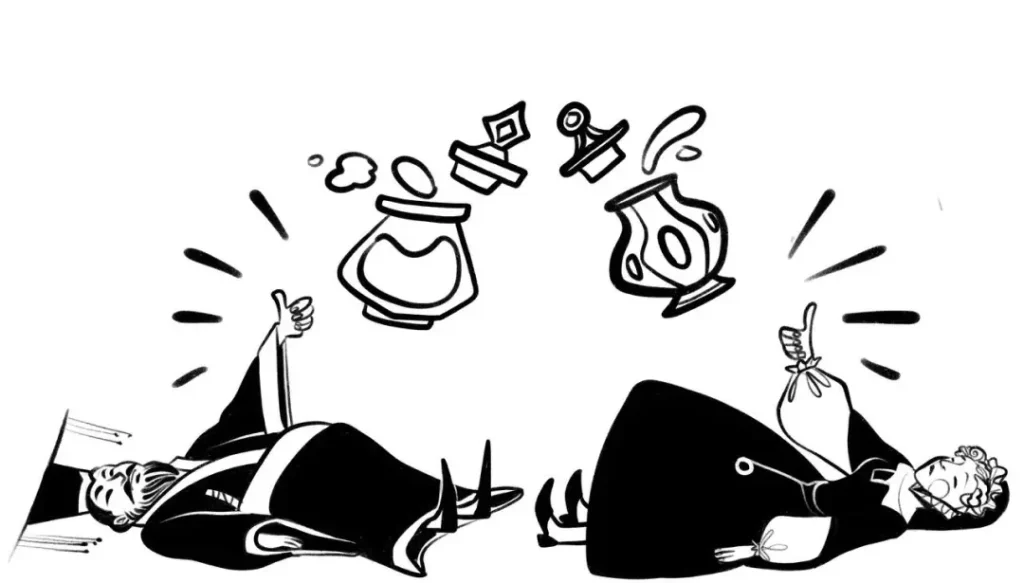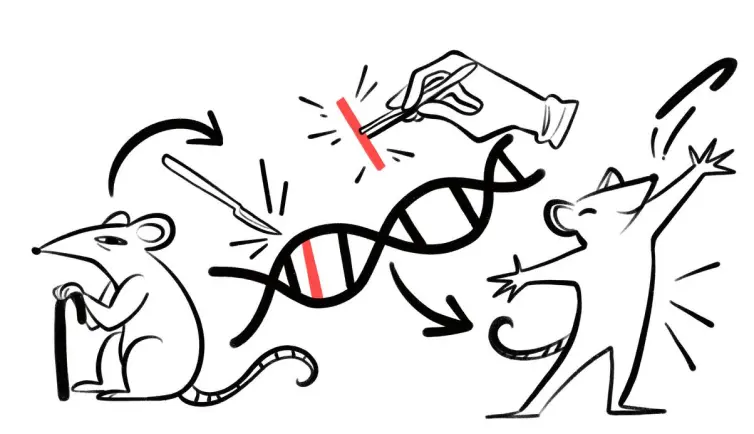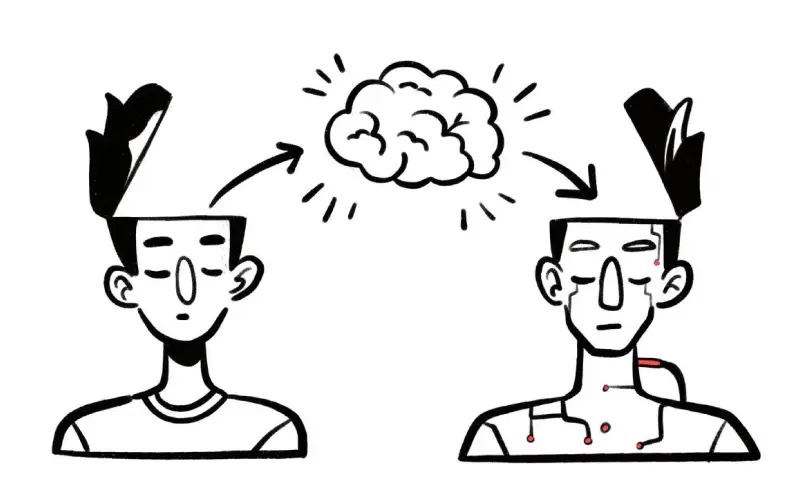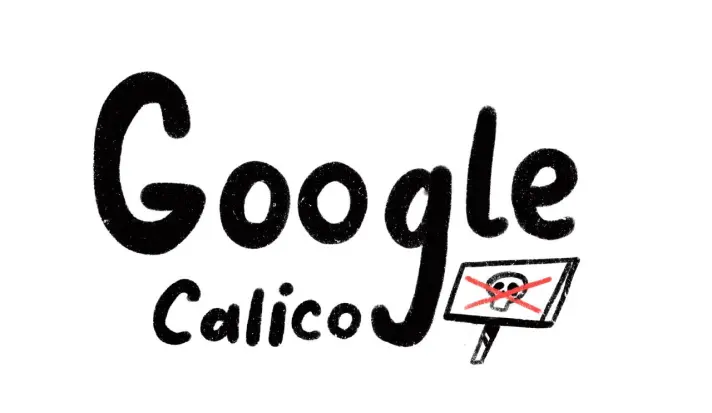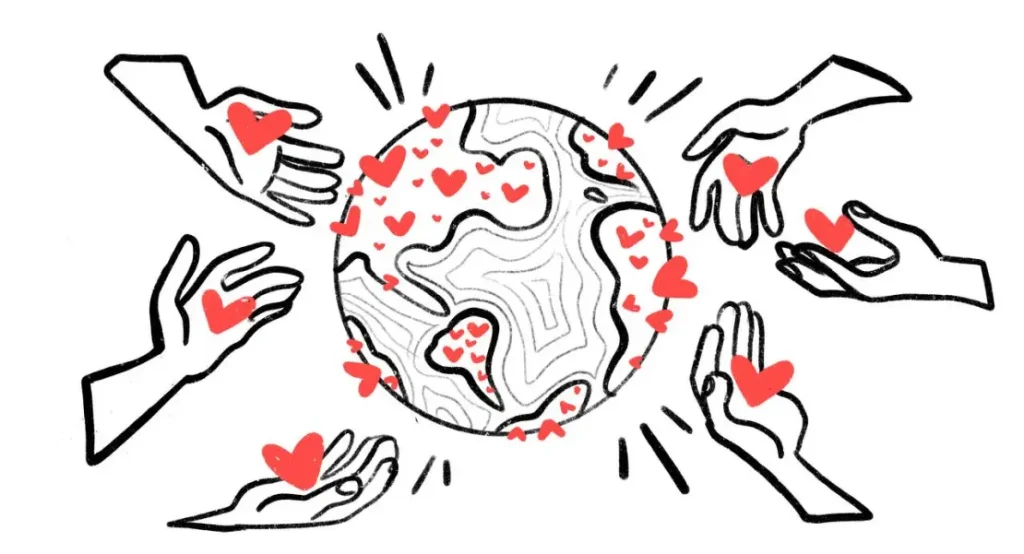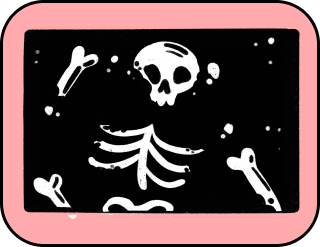The editors of The Global Technology magazine insist that this article is for informational purposes only and categorically does not recommend repeating anything you read in it.
Technology proposed by Count Dracula at the beginning of the 15th century
Based on the fact that someone else’s blood is the source of someone else’s youth and beauty
Preparation:
Choose your youth donor carefully according to your own reference point. At the beginning of the 15th century, donors with powdery white skin and wearing a corset were in fashion.
Action:
Drink, or better yet, transfuse someone else’s blood into yourself.
Possible result:
This technology had many followers, for example, Alexander Bogdanov, who headed the Institute of Blood Transfusion in the 1930s. He performed several experiments with blood transfusions on himself and after each of them he felt better and healthier — until the very last. In the last year of his life, Bogdanov exchanged blood with a student who suffered from malaria and soon died. The real cause of Bogdanov’s death is unknown: malaria or rejection — at that time the existence of blood groups was not yet known.
Nowadays, this technology still has bright followers. For example, the billionaire and biohacker Brian Johnson decided to transfuse the blood of his own son to himself, so that at the age of 45 he would correspond in all respects to an 18-year-old youth. After two months of the experiment biomarker testing showed that the exchange was not beneficial. Johnson explained the failure of the project extremely elegantly — he was too cool and young to become even cooler and younger.
Technology proposed by Emperor Qin Shi Huang of China
Based on the fact that you need to drink a properly prepared immortality elixir every day
Preparation:
Prepare and mix all the ingredients thoroughly. The Emperor, who proposed the use of this particular technology, preferred to make elixirs based on a shiny, silvery-white, liquid and heavy metal that evaporates at room temperature.
Action:
Just drink the prepared elixir.
Possible result:
All emperors who used this technology died from poisoning. Despite that, this technology also had many followers. Diane de Poitiers was a French noblewoman, lover and official mistress of King Henry II of France. She was known for her beauty, which she explained by drinking a special elixir that was based on gold: it included gold chloride, as well as diethyl ether. Unfortunately, the elixir gradually killed de Poitiers, and she died shortly after being expelled from court after Henry’s death.
Technology proposed by Charles-Édouard Brown-Séquard
Based on DNA editing
Preparation:
Select the exact age you want to reduce. It is not recommended to immediately subtract 50 years from your life, it’s better to start with 20.
Action:
Decipher your genome and then make a change to your DNA.
Possible result:
Through gene therapy, it has already been possible to achieve rejuvenation and a sharp increase in life expectancy in laboratory mice. In many laboratories, scientists are working on the creation of ageless transgenic animals, and the most desperate researchers have reached people. For example, Elizabeth Parrish, CEO of BioViva, claims that by using gene therapy, she has managed “to reduce the biological age of her immune cells by 20 years.”
Another follower of this technology is a young Inscripta company which claims that it has discovered a new CRISPR enzyme that allows DNA editing and affects life extension.
Methods to maximally activate genes of one group and completely “turn off” genes of another have been developed and continue to be improved.
Technology proposed by Dmitry Itskov
Based on the transfer of human consciousness into a more advanced mechanical body
Preparation:
Create an artificial body that must be no worse than the original one, the one that over time can surpass even the original body itself.
Action:
Transfer your personality into it and therefore give yourself an unlimited lifespan.
Possible result:
In general, the prospects are amazing. For example, the “I” copied to the hard drive does work and doesn’t get tired at all — it’s a computer! And the real “I” has a rest, philosophizes and reflects on creative issues. And finally, the most incredible thing is the transfer of human consciousness into an artificial brain. Actually, science has yet to figure out what consciousness is, and only then look for ways of such transfer.
Dmitry Itskov, as well as his followers, claim that such technology will make it possible to replace outdated “parts” of the body with more advanced ones. Or maybe replace the entire body if it no longer meets the functions of beauty and aesthetics, just as we now change mobile devices.
The most important thing is that all that is not just fantasy. And specific proposals have appeared in an enthusiast’s portfolio.
There are already tens of millions of people living among us with artificial hip and knee prostheses, implanted pacemakers, and even with electrodes implanted in the brain to relieve epilepsy attacks and treat Parkinson’s disease. So the gradual replacement of failing organs with artificial analogues looks quite realistic in the coming decades.
Technology proposed by Google co-founder Sergey Brin
Based on buying a ticket to eternity
Preparation:
Find your own Larry Page.
Action:
Create a corporation.
Possible result:
Jokes aside, since 2013, Google has been supporting developments that deal with immortality and aging.
They poured hundreds of thousands of dollars into Singularity University, created by futurist Raymond Kurzweil. In addition, the Calico company founded Google, which directly deals with issues of immortality. On the Calico website it is written: “We are trying to unravel one of the main mysteries of life and understand the biological causes of aging.”
Technology proposed by the editors
Based on being human
Preparation:
Think about how you can change the world and implement your idea.
Action:
Doing good things is not always easy. However, don’t wait for the world to become a better place. There is no point in simply complaining that everything is bad; it is enough to help someone who needs it. If every person does something good for others, then the whole world will become a better place, and will no longer seem so dull, gloomy, and inhospitable.
Guaranteed result:
You will become immortal.

